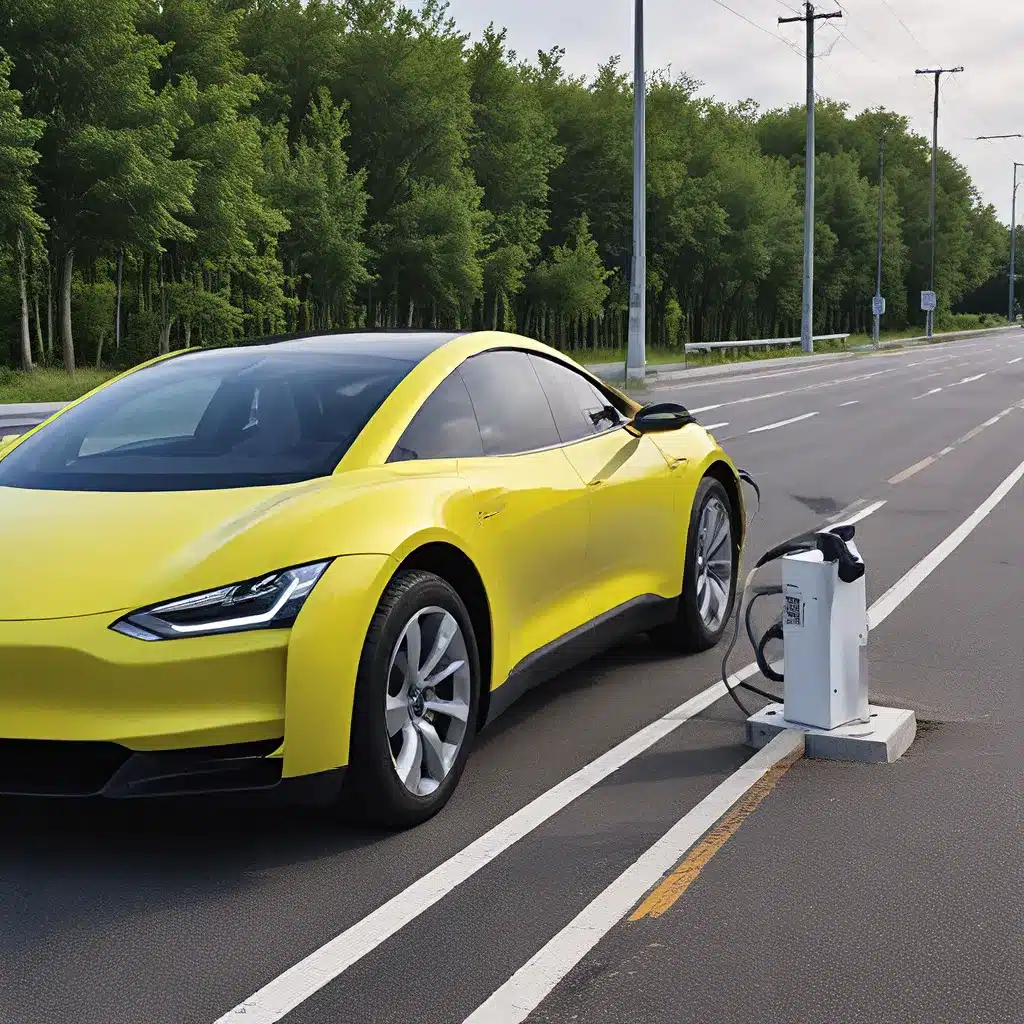
As I sit here, staring out the window at the bustling city streets, I can’t help but feel a sense of excitement about the future of transportation. The world is on the cusp of a paradigm shift, and electric vehicles (EVs) are at the heart of this transformation. Gone are the days of gas-guzzling, emission-spewing vehicles. Instead, we’re witnessing the rise of a clean, efficient, and environmentally-conscious mode of transportation that is poised to reshape the way we move around.
The Unstoppable Rise of Electric Vehicles
It’s no secret that EVs have been gaining momentum in recent years. The White House has reported that EV sales have tripled and the number of publicly available charging ports has grown by nearly 70% since President Biden took office. This rapid growth is a testament to the increasing demand for sustainable transportation solutions, as well as the commitment of both the government and the private sector to accelerate the adoption of EVs.
But what’s driving this surge in EV popularity? The Biden-Harris Administration has played a pivotal role, announcing new public and private commitments to boost access to EVs, save taxpayer dollars, and tackle the climate crisis. By leading by example and transitioning the federal government’s vast fleet of vehicles to EVs, the administration is setting the stage for a nationwide shift towards cleaner transportation.
The Rise of Sustainable Business Travel
One of the most exciting developments in this space is the commitment of major companies and organizations to embrace sustainable transportation options for their business travel needs. American Express Global Business Travel, for instance, is launching a new software solution that helps companies prioritize EVs over gasoline cars when booking trips, making it easier for employees to choose eco-friendly options.
But they’re not the only ones getting on board. Amtrak, Delta Air Lines, and rental car companies like Hertz and Zipcar are all making significant strides in transitioning their fleets to zero-emission vehicles. Marriott International is even committing to more than double the number of hotels with EV charging stations by the end of 2027, making it easier for travelers to keep their electric cars charged on the go.
The Power of Partnerships
This shift towards sustainable transportation isn’t happening in a vacuum. It’s the result of a collaborative effort between the government, private sector, and non-profit organizations. The Biden-Harris Administration’s EV Acceleration Challenge has been a driving force, calling on stakeholders from all corners to make independent commitments to boost EVs in America.
Organizations like Environmental Defense Fund, Natural Resources Defense Council, and Sierra Club have all joined the charge, pledging to prioritize the use of EVs and low-carbon modes of transportation for their own business travel. The Global Business Travel Association (GBTA) and GBTA Foundation are even committing to releasing new sustainable procurement criteria for the industry, sending a strong signal to the market.
The Future is Bright, But Challenges Remain
As exciting as these developments are, it’s important to recognize that the transition to a sustainable transportation future is not without its challenges. The Firewinder team** is closely monitoring the ongoing research and debates around topics like infrastructure, consumer adoption, and the environmental impact of EVs.
For example, the Sustainable Transportation Energy Pathways (STEPS) Program at the UC Davis Institute of Transportation Studies is delving into the complex landscape of traditional and alternative vehicles, fuels, and mobility systems. Their research is helping to identify the policies, technologies, and strategies needed to achieve sustainable transportation goals.
And while the progress made so far is undoubtedly impressive, there’s still work to be done. Some experts believe that the widespread adoption of EVs will require further improvements in battery technology, the expansion of charging infrastructure, and continued government support. Navigating these challenges will be crucial to ensuring that the transition to sustainable transportation is both successful and equitable.
Embracing the Future, One Mile at a Time
As I look out the window once more, I can’t help but feel a sense of optimism. The future of transportation is electric, and it’s a future that we’re all a part of. Whether you’re a business traveler, a commuter, or simply someone who cares about the environment, you have a role to play in this transformation.
So, let’s embrace the future, one mile at a time. Let’s make the switch to electric, support the companies and organizations that are leading the charge, and do our part to create a cleaner, more sustainable world. The journey may not be easy, but with determination and a shared vision, I believe we can get there.

